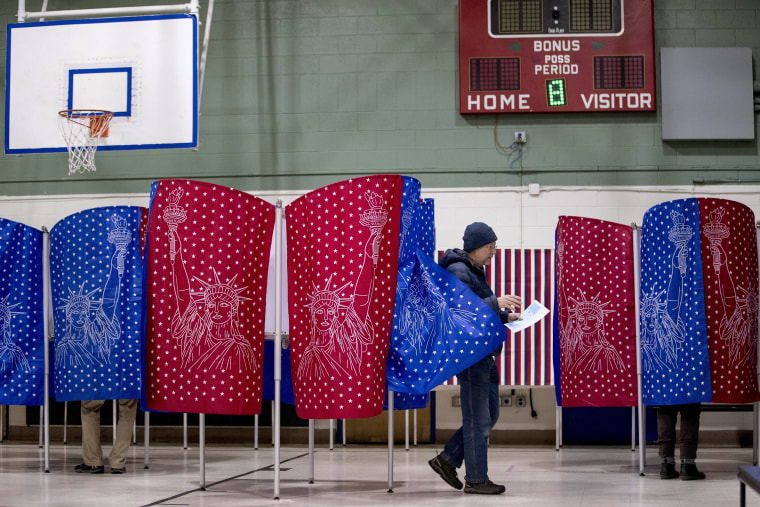The New Hampshire primary is over. The Iowa caucus is — kind of, mostly — settled. But the Democratic primary race is just getting started. There are several more nominating contests in the days and weeks ahead that could prove decisive in selecting a Democratic nominee before the party's convention kicks off on July 13 in Milwaukee.
Here's what's next.
Nevada Democratic caucuses: Feb. 22
This is the third contest of the race, but the second caucus — one that state party officials have said will not suffer the same fate as Iowa's first-in-the-nation caucus, which was thrown into disarray on Feb. 3 when what Iowa Democrats called "inconsistencies" significantly delayed the reporting of results.
Nevada's Democratic caucus is scheduled for Feb. 22 — Nevada's Republican Party voted last year to cancel its caucus, given that President Donald Trump is up for re-election. The Democratic electorate has a significant non-white population, and the caucuses are an opportunity for candidates to show their strength with Latinos, an important Democratic voting bloc. The union vote is also powerful.
Nevada is a solid swing state in presidential elections with a sizable number of Independents and third-party voters, and something of a political bellwether — going for the winning presidential candidate in 31 of 38 general elections since becoming a state in 1864. Notably, this primary, and general election, will be the first time Nevada has had automatic voter registration, which could potentially boost turnout.
Nevada Democrats, with 36 pledged delegates up for grabs, saw low turnout in 2016. This prompted officials to allow early voting for the caucus at more than 80 locations across the state from Feb. 15 to Feb. 18.
The actual process is similar to the Iowa caucuses, in which candidates gather at local meetings to express support for a candidate, rather than head to the ballot box. However, Nevada officials have scrapped a plan to use the same app as Iowa used to collect data and are working on an alternative to avoid a breakdown in reporting the night's results.
South Carolina primary: Feb. 29
Here resides the core of the Democratic base: black voters. The Feb. 29 primary is the first contest in the South and will test candidates' strength with this key demographic. More so than overwhelmingly white Iowa or New Hampshire, the state's electorate more closely resembles the larger Democratic Party, which gives the contest additional significance in selecting the nominee. African Americans make up 27 percent of the state population, and black voters represented 61 percent of the turnout in the state's Democratic presidential primary in 2016, according to NBC News exit polls.
South Carolina, with 54 pledged delegates, have been viewed as former Vice President Joe Biden's firewall, given his strong support among African Americans. Expecting a disappointing finish in New Hampshire, he flew to the state earlier in the day Tuesday and gave a rallying speech, vowing to stay in the race with a focus on the more diverse states.
However, billionaire Tom Steyer, who could be viewed as the dark horse of this contest, has poured millions into the state and hired an army of volunteers and campaign organizers to boost his campaign. And other candidates, such as Sen. Elizabeth Warren of Massachusetts and Sen. Bernie Sanders, I-Vt., have some support among younger African Americans.
Super Tuesday: March. 3
Super Tuesday is one of the most important days in the Democratic primary — the day when the largest number of states and territories vote. It makes up one-third — more than 1,300 — of the total pledged delegate allocation (the magic number to win the nomination is 1,991 of the total 3,979 pledged delegates).
This year, 14 states — Alabama, Arkansas, California, Colorado, Maine, Massachusetts, Minnesota, North Carolina, Oklahoma, Tennessee, Texas, Utah, Vermont and Virginia — plus the territory of American Samoa as well as Democrats abroad will vote. It is vital for candidates to have a strong showing in California because it has a veritable treasure chest of pledged delegates — 415.
Michael Bloomberg is the candidate to watch. He has built a major ground game across the country with 500 organizers and staff in more than 30 states, including all 14 Super Tuesday states, where he also put grassroots leadership teams and organizers. He has more than 800 staffers on his payroll and has spent over $100 million on advertising.


